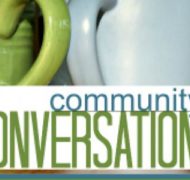Community Post: Now I Know
Blog / Produced by The High Calling
It is easy for a pastor to get “tunnel vision.” That tunnel vision comes from a semi-isolation factor inherent from the nature of the job. For years I had preached about holding out a “light” in the workplace, of being salt, of making a difference. It was easy, at least from my vantage point.
There were to be lessons learned.
The summer of 2000 found me as a pastor without a church. A ministry at a church had ended, but they had graciously offered to pay me for six months with full benefits. Our house sold quickly so we moved in with my aging mother-in-law. Despite the soft landing, the loss of my job hit my identity hard and with it my heart for ministry. I needed to use this time to heal. Other than having a few interviews, I didn’t do much that summer, except ride my bicycle for more than 3600 miles.
One day I rode past a local pizza parlor which was advertising “Drivers Needed.” I had time and could use the extra cash. The promise of delivery and with it the premise of interactions with others was a lure. But the rules of employment changed and I was stuck on the fryer.
I was no longer out delivering pizzas, meeting people and enjoying the freedom that comes from being away from the parlor. I was stuck in the kitchen listening to conversation and language that was uncomfortable for a pastor. My normally positive attitude began to deteriorate. I ached for these kids, but the situation didn’t allow for much interaction with them. I was stuck, not making a difference and just working for a wage. I was in a work situation I had never experienced before-a place where Christian principles were not practiced nor appreciated. My old words of being salt and light at work came back to haunt me. There was no way to spin this theologically.
All the voices from past parishioners (and my callousness) -- of complaints about work conditions, low wages, frustrating bosses, impossible demands -- all came to mind. But it was more. It was my own ghosts of failure, of being told I could not lead a church, of wondering what in the world was I going to do with my life.
That night the past four months of heartache and rejection and stress all came to a head. I struggled to keep my emotions in check as I finished my shift, then left feeling lower than I had ever felt. I wanted to quit. I wondered if I would ever be any good in the ministry again if I couldn’t even hold it together in a pizza parlor.
But in my despair, I learned a lesson that would last me the rest of my life. No longer could I preach “You ought to” when it came to holding firm in work or school, or not losing one’s cool when pushed. My pat answers didn’t hold water anymore. I became a much more understanding pastor who no longer “speaks from the mountain.”
Now I know.
Bill Grandi, also known as Cycleguy, is the lead pastor of Owen Valley Christian Fellowship in Spencer, IN, and blogs at billgrandi.com
This article is part of a series at The High Calling on "The Local Church Equipping Us in Our Vocations." It seems that in many church contexts, what we do Monday through Friday is the least important thing. But shouldn't Christ be the Lord of our work as much as the Lord of our church's ministry programs, our marriages, and our families? Here at The High Calling we not only want to equip and empower the laity to live out their faith in their vocations, but we want to inspire church leaders toequip their people to do so as well. How can church leaders help their congregants to steward their vocations? How can church communities embrace a discipleship paradigm that includes the workplace? If you want to inspire people in your church community to embrace how the vocations of lay people glorify God, why not encourage them by sharing links to these articles in emails, Facebook posts, or through some other social media?





